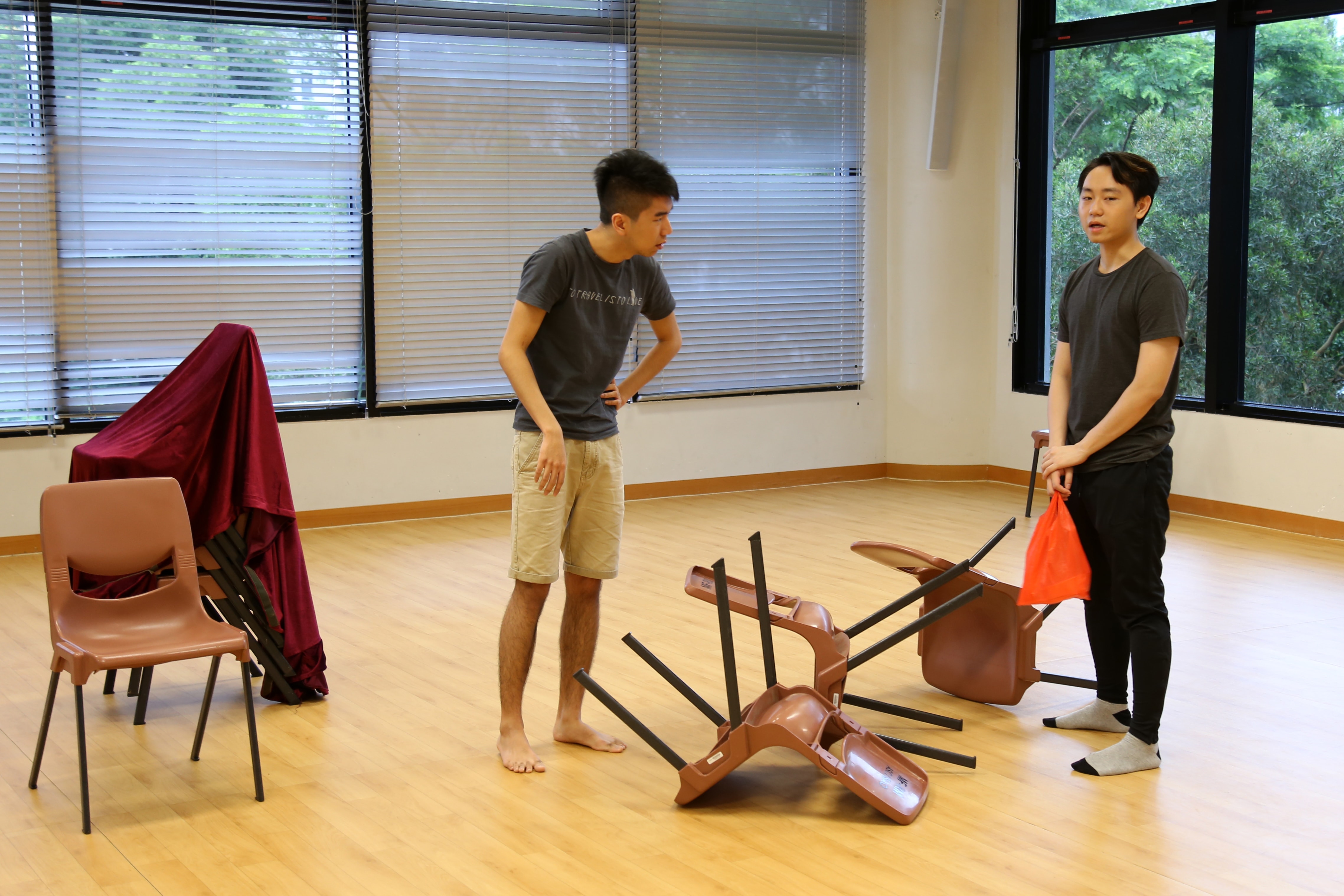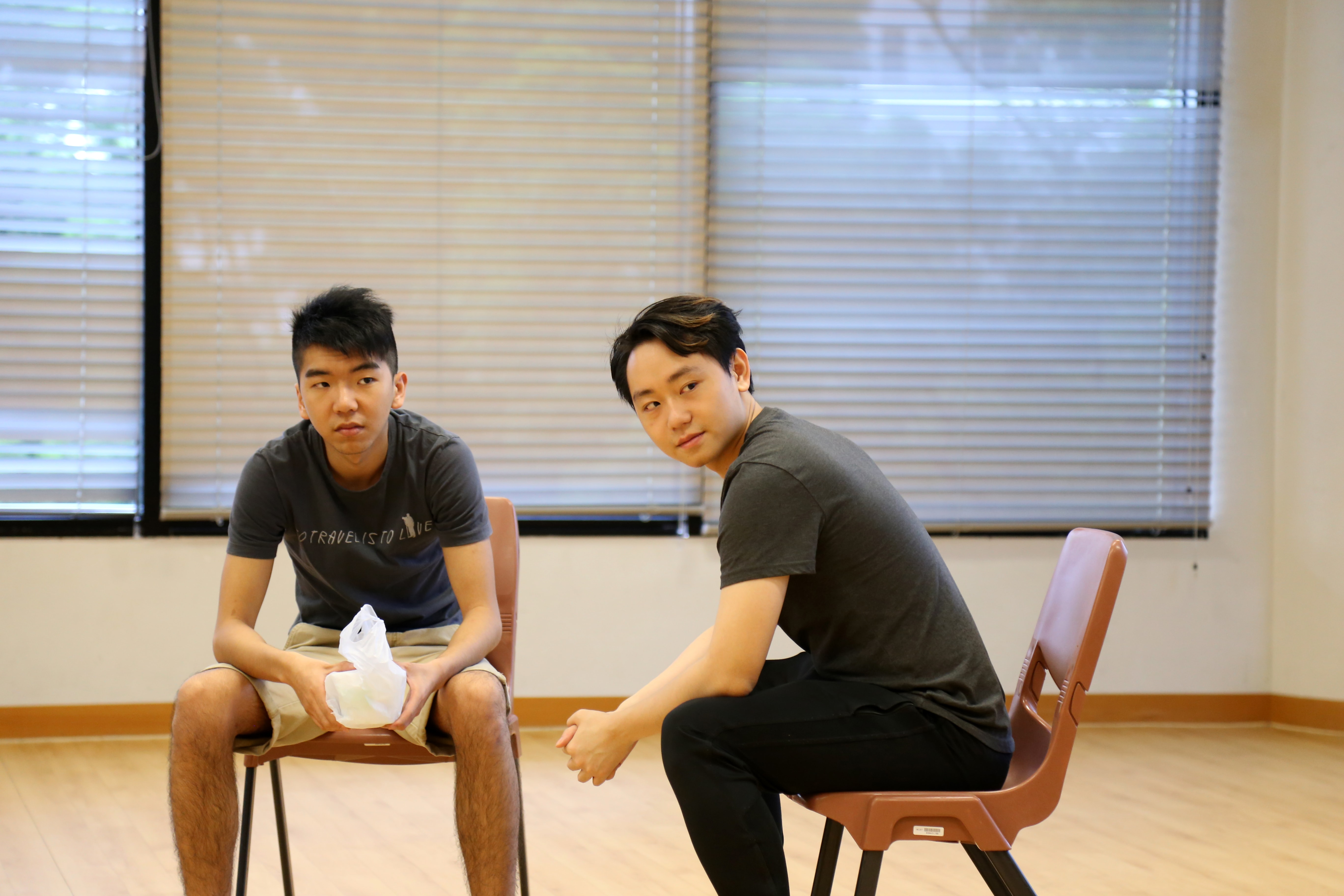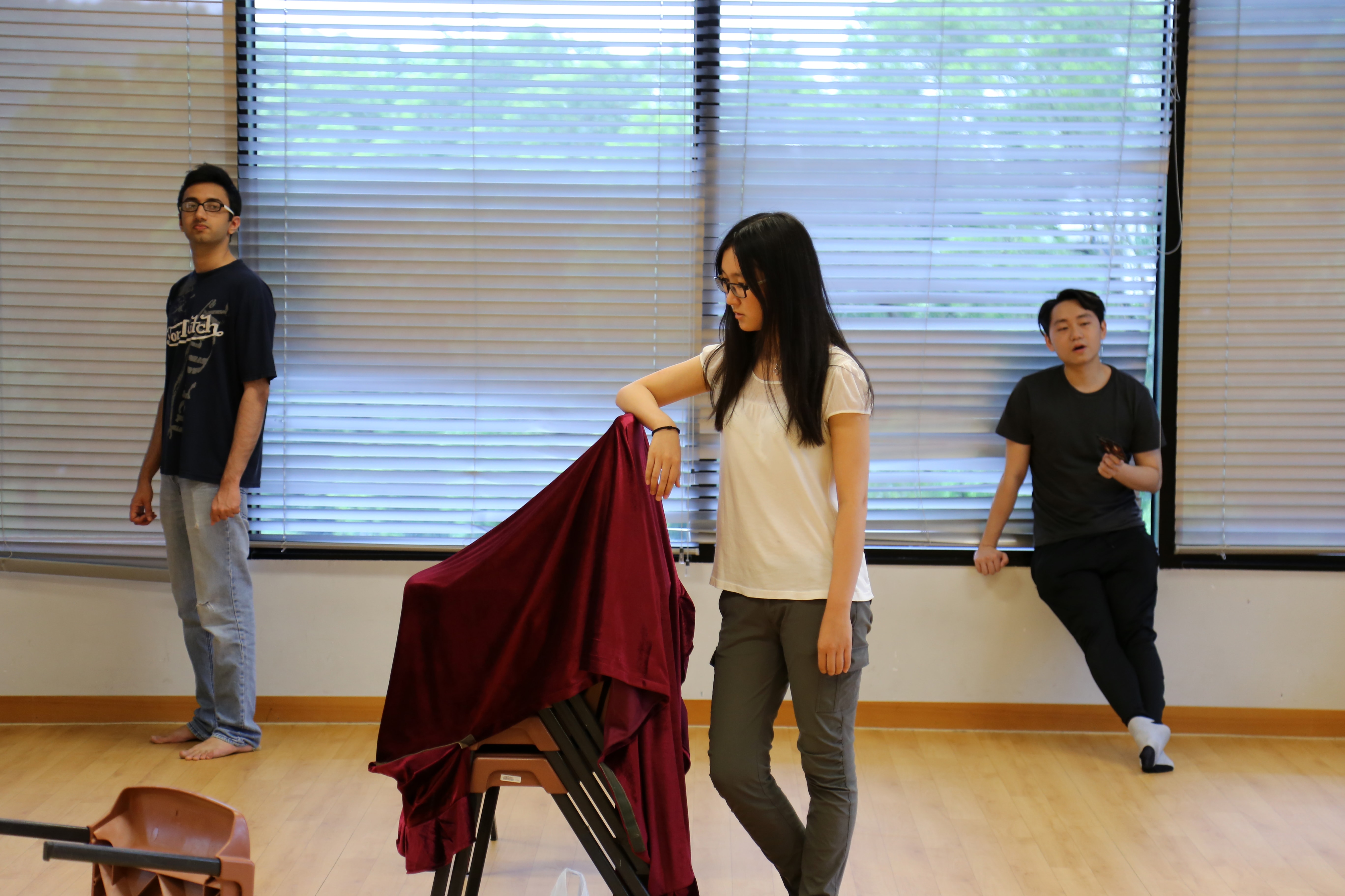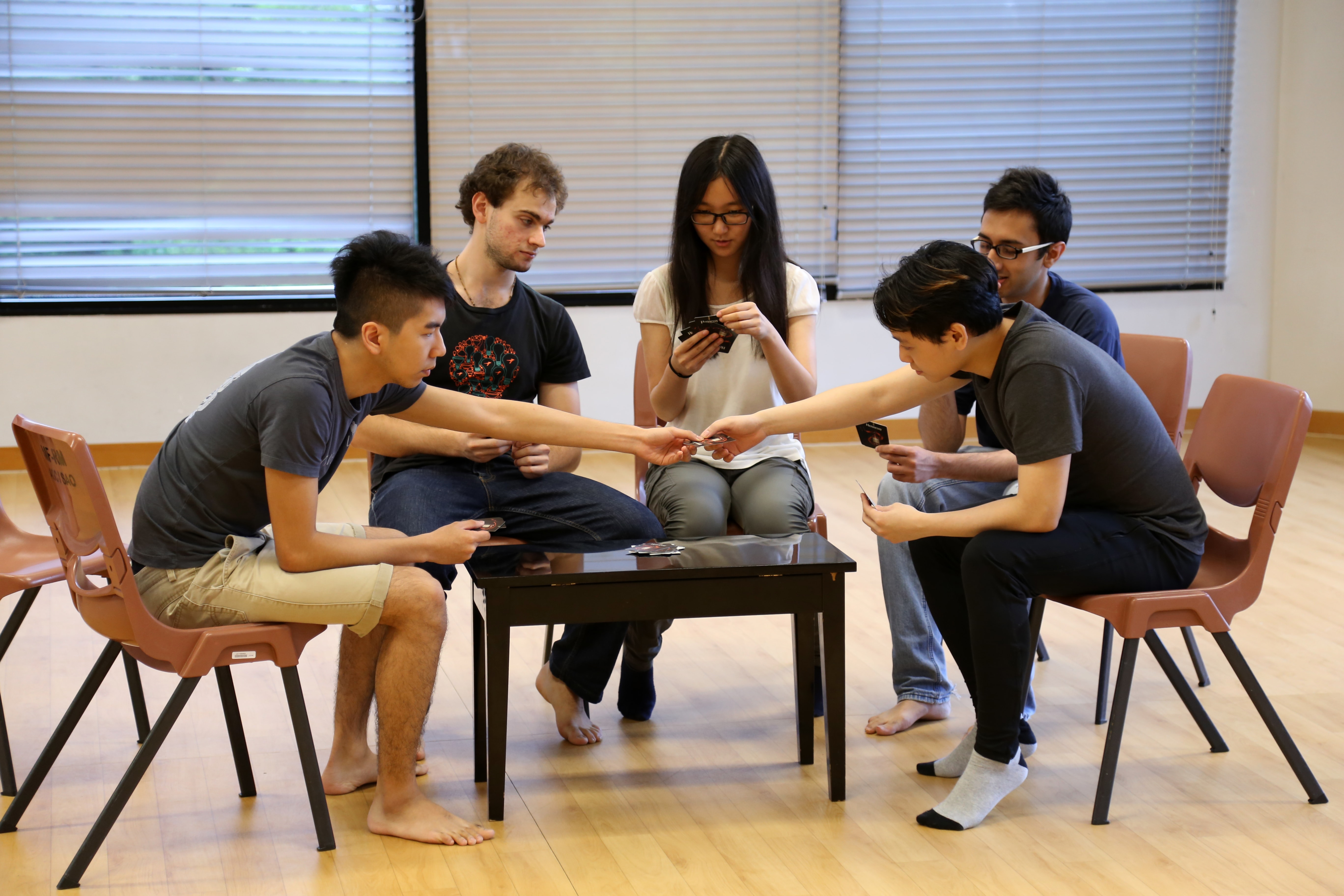2015-16 Summer
(HART 1031)
1 Credit | Can be used to fulfill Common Core Requirement (Core Elective: Arts Area)
Teaching Medium: English
Course Description
Documentary Theatre is created based on real life stories such as personal experiences, social issues or historical events. Primary documentary materials including recorded interviews, newspaper articles, video footages or photographs will be interpreted and composed to create a theatrical representation of the events. Unlike written texts or edited films, Documentary Theatre offers a multi-perspective and three-dimensional way into understanding real life experiences in depth through live performances by performers making use of different dramatic expressive means.
In this course, students will explore different models of documentary theatre, focusing on the relationship amongst the Form, the Purpose and the Content. Students will also have the opportunity to choose a local issue or community of their own interest, conduct face-to-face interviews, interpret and edit the collected data, create a dramatic structure from the research materials, devise an original piece of documentary theatre, and give a performance at the end of the course.
- Acquire and apply the various models and forms of Documentary Theatre.
- Apply the understanding of the social and artistic significance of Documentary Theatre in forming and analyzing theatrical works, and to make connection with one’s personal experience and knowledge.
- Work collaboratively to collect materials, interpret and compose a piece of Documentary Theatre with appropriate styles.
- Rehearse and perform with appropriate content, skills and good collaboration in the final performance.
- Make critical, specific reflection and comments on the performances by themselves and peers.
Phase 1: Basic understanding of documentary theatre
Lesson 1: Basic theories, models and significance of Documentary Theatre
Lesson 2: The essence of stories: Listening and re-telling artistically
Lesson 3: Examples of Documentary Theatre in Different Styles
Lesson 4: Theatre making skills and the notion of accuracy
Lesson 5: Theatre making skills and the role of artistic transformation
Lesson 6: Mini-Documentary Theatre: Focus question, Purpose and Goal
Lesson 7: Interview techniques and setting up interview questions
Phase 2: Creative Process and Performance
Lesson 8: Conducting interviews and interpreting the content
Lesson 9: Experimenting with dramatic forms
Lesson 10: Dramatic Structure
Lesson 11-12: Polishing, Rehearsal and Feedbacks
Lesson 13: Final Performance and Course Evaluation
- Kaufman, M. et al. (2001) The Laramie Project. New York: Dramatists’ Play Service.
- Smith, A. D. (2003) Twilight: Los Angeles, 1992. New York: Dramatists’ Play Service.
- Theatre Workshop. (2000) Oh What a Lovely War. Edited by Joan Littlewood. London: Methuen.
- Hare, D. et al. (2008) Verbatim: Techniques in Contemporary Documentary Theatre. Edited by Will Hammond & Dan Steward. London: Oberon Books
- Briggs, Charles L. (1986) Learning How to Ask: A Sociolinguistic Appraisal of the Role of the Interview in Social Science Research. (Studies in the Social and Cultural Foundations of Language) Cambridge: Cambridge University Press.
- Spradley, James P. (1979) The Ethnographic Interview. Fort Worth: Harcourt Brace Jovanovich Publishers.
- Smith, A. D. (2000) Talk to me. Listening between lines. New York: Random House.
Enrolment Details
Course Registration : 22-23 Jan 2020Add/Drop : 07-20 Feb 2020
Instructor
Krissy Yin LAM
Assessment
| Attendance | 10% |
| Class Participation | 35% |
| Critical Commentary | 25% |
| Final Performance | 30% |





